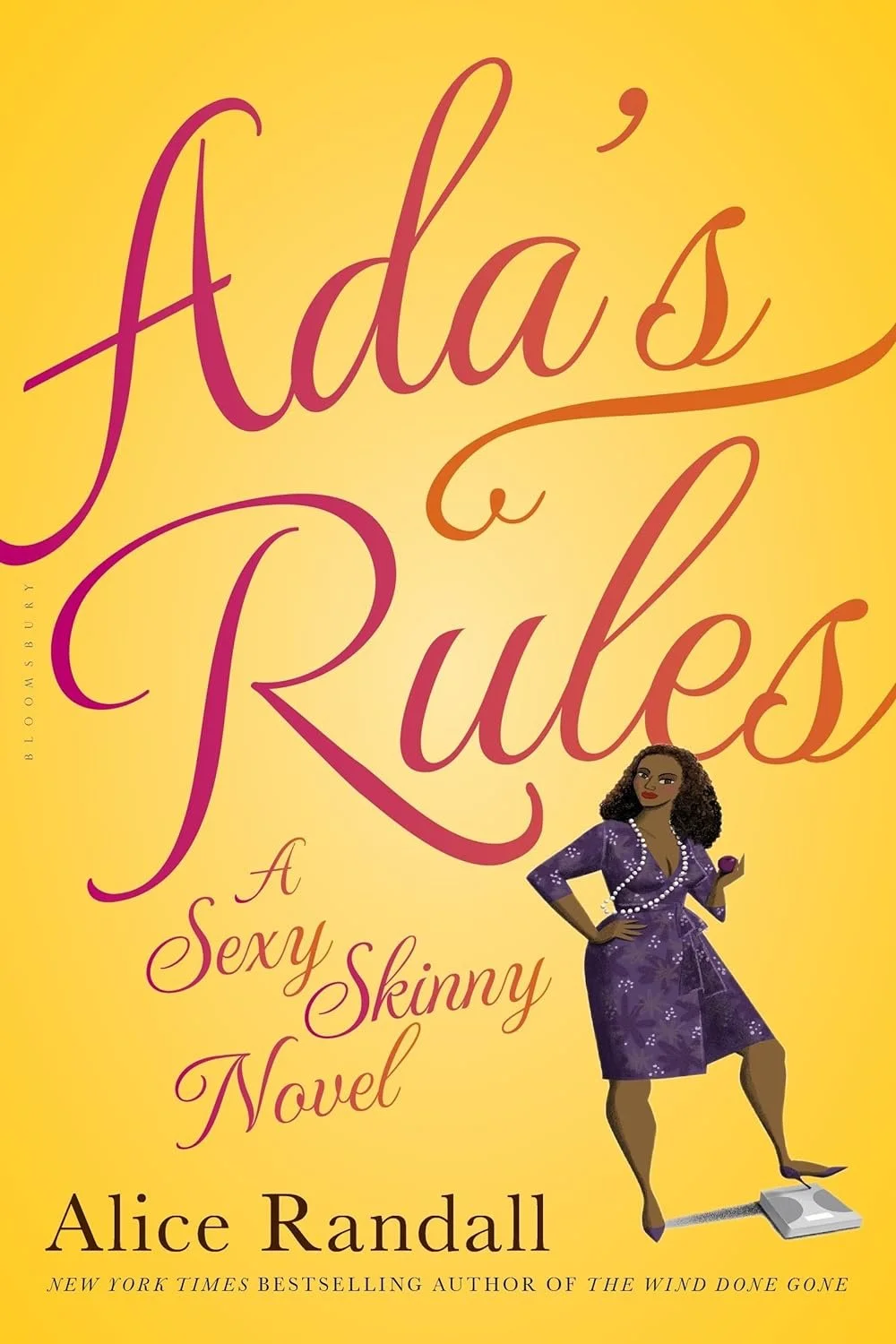
Books
Alice Randall tells untold stories. This time the untold story of Black Country.
What came before? The story of Black Bottom, the Black Detroit neighborhood that once rivaled and eclipsed Harlem as an engine of Black artistic excellence and economic progress before it was destroyed; the story, Cynara’s story, of an imaginative and entrepreneurial beige woman excluded from the pages of Gone With the Wind and celebrated in the pages of Randall’s New York Times bestselling novel The Wind Done Gone; the story of Black spy families; the story of how baked fish and foraged berries became the quintessential celebration meal of Africans enslaved in these Americas; the story of how Black and white Jazz luminaries survive the Great Depression by playing the Black and white coal camps of West Virginia; or the story of Black cowboys on the western frontier, she seeks and sees invisible triumphs and transforms them into novels, songs, cookbooks, and sometimes single recipes, rooted in her experience as a Black woman who was migrated from Motown to Music City.

-

My Black Country
April 9, 2024
“Alice Randall, award-winning professor, songwriter, and author with a “lively, engaging, and often wise” (The New York Times Book Review) voice, offers a lyrical, introspective, and unforgettable account of her past and her search for the first family of Black country music.
Country music had brought Randall and her activist mother together and even gave Randall a singular distinction in American music history: she is the first Black woman to cowrite a number one country hit, Trisha Yearwood’s “XXX’s and OOO’s”. Randall found inspiration and comfort in the sounds and history of the first family of Black country music: DeFord Bailey, Lil Hardin, Ray Charles, Charley Pride, and Herb Jeffries who, together, made up a community of Black Americans rising through hard times to create simple beauty, true joy, and sometimes profound eccentricity.
What emerges in My Black Country is a celebration of the most American of music genres and the radical joy in realizing the power of Black influence on American culture. As country music goes through a fresh renaissance today, with a new wave of Black artists enjoying success, My Black Country is the perfect gift for longtime country fans and a vibrant introduction to a new generation of listeners who previously were not invited to give the genre a chance.”
—Simon & Schuster
-

Black Bottom Saints
2020 • Visit: Black Bottom Saints Museum
“The heyday of twentieth-century Black culture is usually associated with New York’s Harlem and Chicago’s Bronzeville. But Detroit’s Black Bottom surpassed the larger cities. So declares Ziggy Johnson, renowned dance teacher, club emcee, and entertainment columnist. On his deathbed, Ziggy recalls the splendor of a career spent in the company of entertainment luminaries and the striving Black middle and working classes. Ziggy drops and weaves names, including Dinah Washington, Bobby Short, Count Basie, Joe Louis, Josephine Baker, and Bricktop, with a nod towards a famed bartender, Thomas Bullock. Ziggy closes each entry with the recipe for a Bullock libation. Interwoven with Ziggy’s accounts is the story of Colored Girl, one of Ziggy’s most promising students. Colored Girl is tending to a dying and embittered mother who holds many secrets to her daughter’s cherished memories of Detroit. Randall, author of the acclaimed Wind Done Gone (2001) and Ada's Rules (2012), draws on a real-life Ziggy Johnson, using his charisma and connections to reveal untold stories of Detroit and to celebrate an incredible network of artists and influences and the many ways of building community through church and club work but also through entertainment venues. This is an exuberant celebration of the arts, including the arts of living well and caring for others. HIGH-DEMAND BACKSTORY: Each of Randall's books is a literary event, and readers will embrace this radiant celebration of African American art and culture.”
—Starred Review Booklist
-

Ada’s Rules
Published by Bloomsbury, USA • 2012
“It is impossible not to fall in love with the plucky plus-size heroine of bestselling author Randall’s fourth outing (after Rebel Yell). When Ada Howard—wife of Lucius “Preach” Howard, the pastor of Nashville’s Full Love Gospel Tabernacle (whom Ada suspects of getting love not just from the Lord, but from another woman)—receives an invitation to her 25th college reunion, she takes the opportunity to reclaim the thin body she once had, in hopes of impressing her college sweetheart. Ada draws up a list of 53 sensible diet rules, and vows to follow every last one. Rule #1: “Don’t Keep Doing What You’ve Always Been Doing.” Randall uses each maxim as a chapter heading, leading readers deeper into Ada’s struggle and self-discovery while she drops the pounds. As Ada learns that any meaningful change must be made for one’s own self, she inspires and energizes those around her. A heartwarming and engaging read, Ada’s story is more than that—readers following Randall’s rules will drop the pounds along with Ada, and perhaps discover something about themselves.”
—Starred Review Publisher’s Weekly
-

Rebel Yell
Published by Bloomsbury, USA • 2009
“Abel Jones, Jr., son of a famous black civil rights lawyer, has died while dining with his second wife, a white woman, at a dinner theater reenacting the Confederate perspective on the Civil War. How did Abel’s life come to such a pass? His first wife, Hope, and a former colleague, Nicholas, get together after the funeral to recall Abel’s life and motivation. All the while, Hope is haunted by the possibility that Abel may have been involved in CIA operations, including torture. She left the marriage to save herself and their young son from Abel’s latent violence and wonders if she could have saved Abel if she stayed. Listening to Nicholas, a British dandy and very likely a spy, Hope flashes to meeting Abel at Harvard and travelling with him to his first Foreign Service assignment, in Manila. Randall moves masterfully between past and present and between Nashville, Washington, D.C. , Manila, and Rome to present an intriguing portrait of a young black couple struggling with racial identity and expectations. As in The Wind Done Gone (2001) and Pushkin and the Queen of Spades (2004), Randall demonstrates, with delicious imagery and a sense of racial irony, a love for history’s forgotten and overlooked.”
—Starred Review Booklist
-

Pushkin and the Queen of Spades
Published by Houghton Mifflin • 2004
"The Wind Done Gone is a little ditty compared with Pushkin and the Queen of Spades," Randall's operatic, far more audacious and accomplished second novel. Having warmed up her vocal cords and won our attention, she shows us the high notes she can reach when she orchestrates her background as a Harvard English major with roots in the Motown enclave of Detroit. In the guise of a mother's rant against her son's choice of bride, her new novel is an impassioned aria on the ferocity and consummate importance of parental love. It is also a complex manifesto on why and how race and roots matter, especially "in the face of love."...(Randall's novel) climbs the scales of powerful storytelling....Windsor's odyssey from prejudice to pride encompasses numerous literary references and brief ethnocentric reappraisals of various members of the literary canon, including Faulkner, Fitzgerald, Chaucer, "Othello" and "Jane Eyre." The poet Pushkin gets a full makeover....Randall's rap is a spirited tour de force enriched by her experience as a country songwriter. Purists may be less than thrilled, but Pushkin X enthusiastically pronounces it a wild "blue-eyed nigger of a poem…. It's a bastard of two strong things." Which, if you ask me, pretty well sums up Randall's stunningly gutsy, literate and original novel."
—Heller McAlpin, The Los Angeles Times
-

The Wind Done Gone
Published by Houghton Mifflin • 2001
“Randall's brilliant first novel tells some of what Margaret Mitchell's Gone with the Wind left untold about the racial underbelly of southern gentility. Cynara is Scarlett O'Hara's half-sister, the child of Captain O'Hara and Mammy, before she made herself sexually unavailable under her enormous weight. Cynara's diary of life as a mulatto at Tara and during Reconstruction reveals jealousy, resentment, hypocrisy, well-guarded family secrets, and personal redemption. She writes of her transformation from resentful slave to independent-minded woman, recalling especially her father's treachery as, unable to bear freeing her, he sells her away from her home to avoid her inevitable fate as bedmate to Scarlett's husband. Yet, through a twist of fate, Cynara ends up in a brothel frequented by Rhett Butler. In Randall's South, slaves aren't childish simpletons but clever manipulators with much more depth and texture of character than Mitchell allowed them in her portrayal of a South without racial brutality and miscegenation. Through Cynara, Randall speaks poignantly for those habitually forgotten or silenced in the history of the Old South. She risks being silenced herself, however, for the trust that owns the copyright for Gone with the Wind is suing to block publication of The Wind Done Gone, and a trust attorney has accused Randall of "wholesale theft of major characters.”
—Starred Review Booklist
-

Soul Food Love
(with Caroline Randall Williams)
Published by Clarkson-Potter • 2015"Readers of The Wind Done Gone (Mariner) and Ada's Rules (Bloomsbury) know that author Alice Randall can write. Who knew that she could throw down in the kitchen? The novelist combines her literary and culinary skills for Soul Food Love. Joined by her daughter, Caroline Randall Williams, Alice whips up savory dishes remixed with healthy ingredients that your taste buds and spirits are certain to appreciate."
—Essence
-

The Diary of B.B. Bright, Possible Princess
(With Caroline Randall Williams)
Published by Turner Publishing • 2012“Sweet, sassy and mystical, this novel deftly melds an old-fashioned story of princess preparation with the modern twist of body image and self-esteem. Young readers will respond to the voice as well as the predicament, while grown-ups will appreciate the values.”
—Kirkus Reviews










